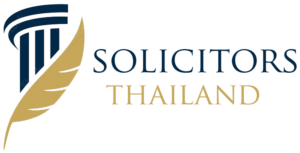A Foreign Business License (FBL) in Thailand is a legal permit that allows foreign-owned businesses to operate in sectors restricted by the Foreign Business Act (FBA) of 1999. Thailand restricts certain industries to Thai nationals to protect local businesses, making the FBL essential for foreigners looking to operate in sectors like real estate, retail, and construction. The license requires approval from the Ministry of Commerce and other relevant agencies, with eligibility based on economic benefits, investment, and technology transfer potential.
1. Understanding the Foreign Business Act and Restricted Industries
The Foreign Business Act (FBA) classifies industries into three categories, each with different requirements for foreign involvement:
- List 1: Fully restricted to Thai nationals; foreign ownership is not allowed (e.g., media, agriculture, land trading).
- List 2: Restricted, but foreigners can apply for an FBL with special approval from the Thai Cabinet (e.g., national security sectors, arts, traditional Thai handicrafts).
- List 3: Limited foreign access; foreign-owned companies can apply for an FBL through the Ministry of Commerce (e.g., retail, wholesale, advertising, tourism).
The Ministry of Commerce evaluates applications based on their economic impact, technology transfer potential, and benefits to the local labor market.
2. Eligibility Criteria and Requirements for the FBL
To obtain an FBL, foreign companies must demonstrate how their business contributes to Thailand’s economy and provide key documentation:
- Business Plan: Details of the business’s purpose, economic impact, and employment contributions.
- Minimum Capital Requirement: Foreign companies must invest at least THB 3 million per business. Certain high-capital sectors or industries promoted by the Board of Investment (BOI) may require larger investments.
- Technology and Knowledge Transfer: Projects that enhance local industry skills or provide technology transfer are more likely to receive approval.
- Employment of Thai Nationals: The company must hire Thai employees, with ratios that often depend on industry and specific business activities.
Applications are more favorable if the company presents a strong case for economic benefit and compliance with local labor laws.
3. The Application Process for the FBL
The FBL application process includes a series of steps with specific regulatory review stages:
a) Preparation and Submission
Applications are submitted to the Department of Business Development (DBD) under the Ministry of Commerce. Documents required include the company’s certificate of incorporation, business plan, capital statement, and lease agreements (if applicable).
b) Review and Evaluation
The Foreign Business Committee evaluates the application, assessing whether the proposed business aligns with Thai development goals, supports local employment, and respects local customs. For List 2 industries, Cabinet approval is additionally required.
c) Approval and Issuance
Once approved, the Ministry of Commerce issues the Foreign Business License, typically valid for five years, subject to renewal.
The entire process can take two to six months, depending on industry type, business complexity, and any specific industry restrictions.
4. Benefits and Limitations of the FBL
Benefits
- Market Access: An FBL allows foreign companies to operate in restricted sectors legally.
- Operational Stability: Businesses with an FBL face fewer restrictions than those structured with nominee shareholders to bypass foreign ownership limits.
- Investment Security: The license offers a structured, government-endorsed approach to conducting business in Thailand, protecting foreign investments under Thai law.
Limitations
- Industry Restrictions: Certain industries remain fully restricted to foreign investment, limiting market entry.
- Capital Requirements: High capital thresholds may limit the FBL’s accessibility to smaller foreign enterprises.
- Compliance and Renewal: Companies must adhere to Thai laws and renew the FBL regularly, subject to ongoing review by the DBD.
5. Alternatives to the FBL for Foreign Businesses
Foreign businesses that do not qualify for an FBL have other options:
- Board of Investment (BOI) Promotion: The BOI promotes certain industries by providing incentives, such as tax exemptions and relaxed foreign ownership rules.
- US-Thailand Treaty of Amity: Allows US citizens and companies to own majority shares in businesses outside a few restricted sectors.
- Joint Ventures with Thai Partners: Many foreign investors opt to form partnerships with Thai nationals to meet local ownership requirements, particularly in industries under List 3 of the FBA.
Each alternative has specific conditions, and foreign businesses should consult with a legal advisor to choose the best approach.
Conclusion
The Foreign Business License is a vital tool for foreigners aiming to operate within Thailand’s restricted industries. By understanding eligibility requirements, application procedures, and the regulatory environment, foreign businesses can successfully navigate the FBL process. Consulting experienced legal and business advisors helps streamline the process, ensuring compliance with Thai law and optimizing opportunities for market entry.

